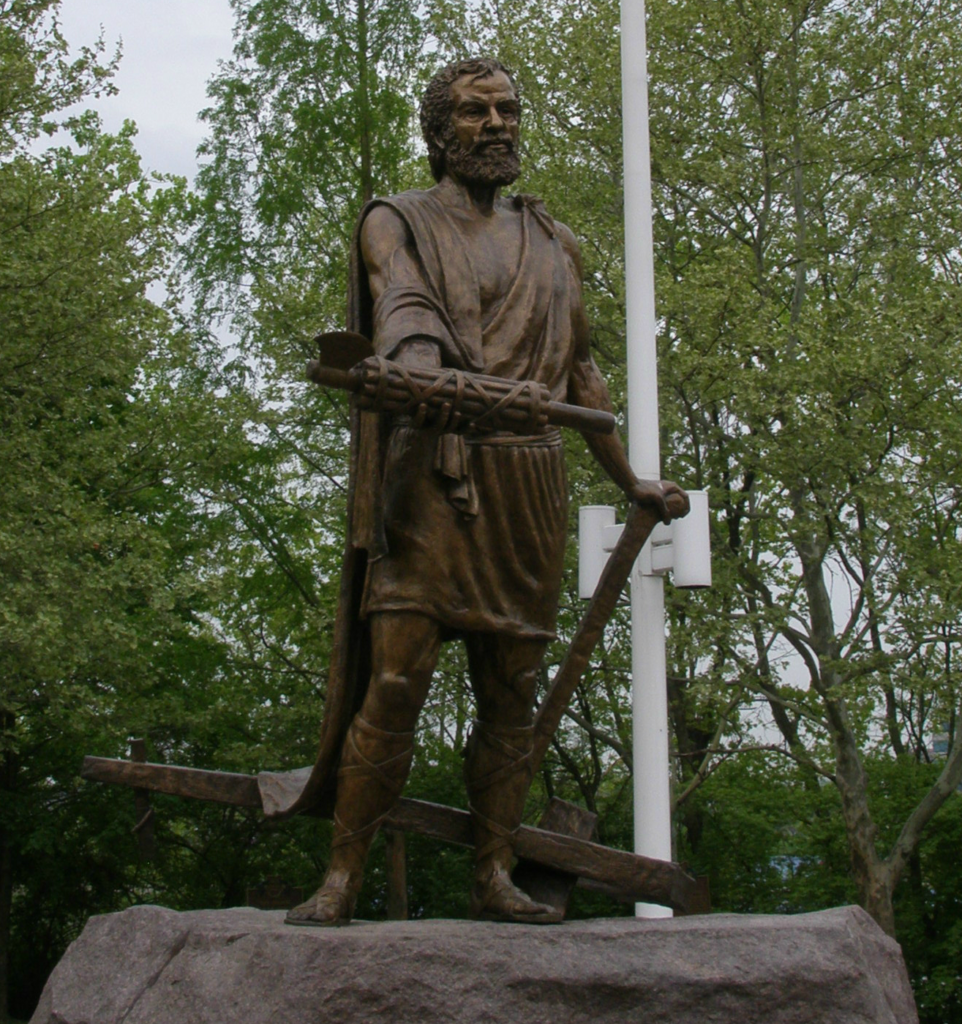
Even two thousand five hundred years ago, Rome was a republic. The people elected their rulers.
In times of peace the common people lived as farmers. They turned into soldiers when necessary.
Once, in a narrow valley, the Roman army was surrounded by an enemy army. The enemy planned to starve the Roman army to surrender.
An old farmer got the news in the afternoon. He stopped ploughing and called all the able-bodied Romans to follow him, each carrying a long wooden plank or several wooden stakes.
At the dead of night, he made his followers silently surround the enemy and plant the planks before themselves. At dawn the enemy found that just as they had encircled the Roman army, they too had been encircled by another army of Romans who had erected a wall of wooden planks around.
The enemy gave up. Romans were victorious. The farmer was requested to rule Rome as the dictator. But he returned to his field and resumed ploughing.
His name was Cincinnatus.
Chandamama March 1979
Lucius Quinctius Cincinnatus (519-430 BC) was a Roman patrician, statesman and military leader of the early Roman Republic who became a legendary figure of Roman virtue —particularly civic virtue — by the time of the late Republic. Despite his relatively old age, he worked his own small farm until an invasion prompted his fellow citizens to call for his leadership. He came from his plough to assume complete control over the state but, upon achieving a swift victory in only 16 days, relinquished his power and its perquisites and returned to his farm. His success and immediate resignation of his near-absolute authority with the end of this crisis (traditionally dated to 458 BC) has often been cited as an example of outstanding leadership, service to the greater good, civic virtue, humility, and modesty.
Cincinnati, a city in and the county seat of Hamilton County, Ohio, United States, owes its name to the Society of the Cincinnati, a fraternal, hereditary society founded in 1783 to commemorate the American Revolutionary War that saw the creation of the United States. The members called themselves Cincinnati in honour of the legendary figure Cincinnatus.
Image: Statue of Cincinnatus with his plough in Cincinnati, Ohio. Chris Light – Wikicommons, Public Domain, https://commons.wikimedia.org/w/index.php?curid=52779346
